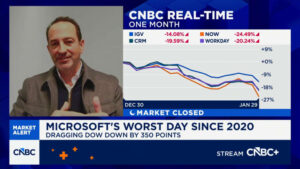The Taylor Wimpey (LSE: TW) dividend is amazing.
With the housebuilder’s share price near 118p, shareholders are getting a forward-looking dividend yield of more than 8% for 2024.
But is that dividend safe? Or will the directors cut it before we can collect the payment?
After all, it’s quite well known in the investment community that a high yield can sometimes be a warning sign of trouble ahead.
A volatile financial record
And the firm’s dividend record isn’t pristine. For example, the shareholder payment reduced for the 2019 trading year. And it’s also forecast to drop a little this year.
However, all other years from 2017 onwards have shown healthy rises in the dividend. And City analysts predict an uplift of almost 10% for the payment relating to 2024 trading.
But revenue, earnings and operating cash flow all show volatility over a multi-year period. And it almost goes without saying that the share price has been wobblier than a fiddle player’s elbow.
All of those outcomes arise because of the undoubted cyclicality in the housebuilding sector. In fact, I often lump bank stocks and housebuilders’ shares together to give me a sense of how investors feel about the prospects for the wider economy.
Indeed, watching bank and housebuilder stocks can sometimes provide clues about where markets may be heading. But that’s not always true. And each sector has its own unique drivers as well.
For example, housebuilders are trading against a backdrop of favourable long-term supply and demand characteristics. In other words, more people want homes than there are homes available. And that’s good for builders.
But in the shorter term, anything can happen. And events such as war, economic recession, rampant price inflation, pandemics and other things can all affect building businesses. And it’s possible for revenue, profits, cash flow, share prices and dividends to plunge with little notice – such are the risks of cyclicality.
Dividends look set to continue
However, it’s worth remembering that cyclicality can work in both directions. And stocks such as Taylor Wimpey can rise fast when the general economic sun comes out from behind the storm clouds. And under such conditions, we’ll all worry less about whether the dividend is sustainable or not.
Meanwhile, last month the company posted a robust set of full-year figures for 2022. And the directors said the spring selling season started with an uptick in sales compared to the prior fourth quarter.
However, the reservation rate is “significantly” lower than in recent years. And that’s because affordability concerns have been depressing buyers’ activity. So, Taylor Wimpey has reduced the build programmes for 2023.
Nevertheless, chief executive Jennie Daly explained that the business will likely support the dividend policy. And that is to pay out 7.5% of net assets — or at least £250m — annually “throughout the cycle”.
Therefore, the Taylor Wimpey dividend may prove to be sustainable as long as there’s no dramatic downturn in general economic conditions. And at the very least, I rate the company as worth further research time for investors.
This post was originally published on Motley Fool







